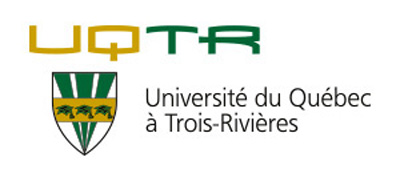Related projects
Discover more projects across a range of sectors and discipline — from AI to cleantech to social innovation.
Mitacs brings innovation to more people in more places across Canada and around the world.
Learn MoreWe work closely with businesses, researchers, and governments to create new pathways to innovation.
Learn MoreNo matter the size of your budget or scope of your research, Mitacs can help you turn ideas into impact.
Learn MoreThe Mitacs Entrepreneur Awards and the Mitacs Awards celebrate inspiring entrepreneurs and innovators who are galvanizing cutting-edge research across Canada.
Learn MoreDiscover the people, the ideas, the projects, and the partnerships that are making news, and creating meaningful impact across the Canadian innovation ecosystem.
Learn MoreCorruption is recognized as a major factor hindering the development and advancement of countries where it is prevalent. (By corruption, I specifically mean political corruption, the use of powers by government officials for illegitimate private gain [Wikipedia].) Even where the incidence of corruption is relatively low, corruption when exposed has had dramatic effects, including changes in government as the majority of voters indicated their strong disapprovalthis has been the recent history in Canada and particularly in Quebec. One possible reason why corruption is so hard to eliminate from societies where it is prevalent is that certain aspects of their national culture might actually be disposed to corruption-like behaviours. If this is the case, then solutions would need to be far more fundamental than merely enacting laws. This project investigates if certain aspects of national culture affect whether there is more or less corruption in countries of the world.
This study will feature the following major components:
Conduct a literature review to identify the relevant factors, as described in the following components.
Identify relevant characteristics of culture that affect corruption. Some research has investigated how a societys innate culture might affect the incidence of corruption among its citizens. Most notably, Husted (1999) found that certain cultural characteristics (power distance, masculinity and uncertainty avoidance) were correlated with corruption. Culture is a very complex concept; it is particularly challenging to characterize numerically. The two most notable research efforts that have tried to classify and quantify culture on the national level are Hofstedes cultural dimensions and the GLOBE study (Global Leadership and Organizational Behavior Effectiveness Research). By examining more refined perspectives of culture from these studies variables, I believe that it is possible to identify relevant cultural characteristics that can explain how culture might affect the national incidence of corruption.
Identify and collect reliable measures of national corruption. The two primary data sources for measuring corruption will be Transparency Internationals Corruption Perceptions Index and the World Banks Control of Corruption indicator.
Identify various other factors that affect corruption (control variables). Several economic factors have been found to contribute towards corruption, such as gross domestic product (GDP), past colonial status, religious work ethic, among others (Treisman 2000). This project will need to demonstrate that culture explains corruption over and beyond other recognized factors.
Conduct multivariate statistical analyses (e.g. multiple regression and MANOVA) to verify the effects of culture on corruption, while controlling for other known factors.
The results of the study will be prepared for publication in a conference or journal article, or both.
References
Husted, Bryan W., and Instituto Tecnologico y de Estudios. “Wealth, culture, and corruption.” Journal of International Business Studies (1999): 339-359.
Treisman, Daniel. “The causes of corruption: a cross-national study.” Journal of public economics 76.3 (2000): 399-457.
Chitu Okoli
Peng Tang
Statistics / Actuarial sciences
Concordia University
Globalink
Discover more projects across a range of sectors and discipline — from AI to cleantech to social innovation.
Find the perfect opportunity to put your academic skills and knowledge into practice!
Find ProjectsThe strong support from governments across Canada, international partners, universities, colleges, companies, and community organizations has enabled Mitacs to focus on the core idea that talent and partnerships power innovation — and innovation creates a better future.













































































































































































































































































































